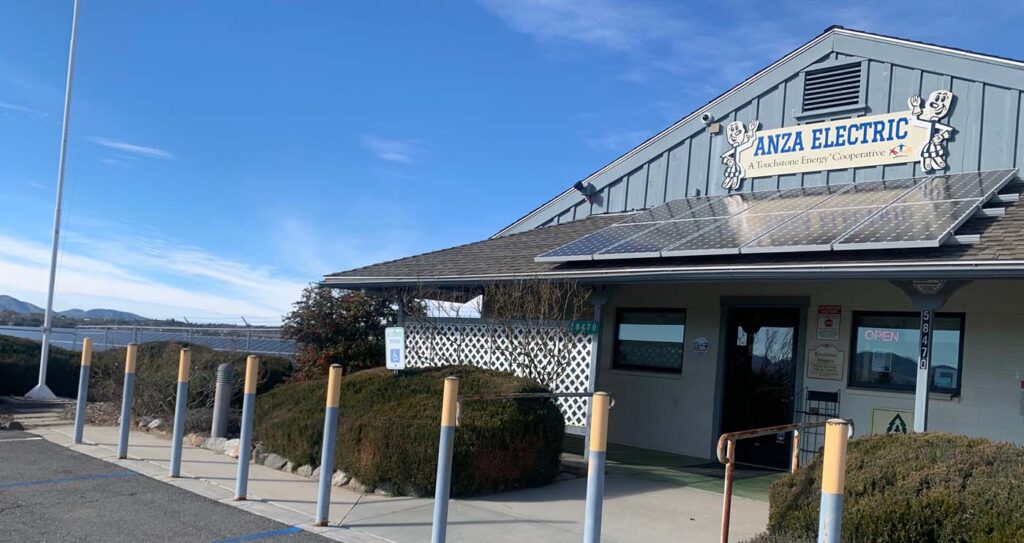
Seven electric cooperatives will join a nearly $58 million cost-share program with the Department of Energy to build a range of microgrids to improve grid resiliency and reliability for remote and economically challenged communities across the country.
DOE announced Feb. 27 that it will negotiate $45.2 million in funding for the co-ops under the Office of Clean Energy Demonstrations’ Energy Improvements in Rural or Remote Areas (ERA) Program, part of the bipartisan infrastructure law. The co-ops will provide an additional $12.6 million. The final budget for the five-year program will be determined after award negotiations are completed this year.
NRECA led the seven-co-op consortium in applying for funding for the Microgrids for Community Affordability, Resilience, and Energy Decarbonization (CARED) project. Project technologies will include solar PV and battery energy storage systems with distribution upgrades.
“These electric co-ops will build microgrids so vulnerable communities can mitigate extreme weather risk and end-of-the-line connectivity issues and support essential and emergency services,” said Tolu Omotoso, director of energy solutions at NRECA and principal investigator/program manager for the project.
“Without this investment by DOE, these critical projects would not happen.”
The seven microgrid consortium co-ops are:
- Anza Electric Cooperative in Anza, California.
- Blue Ridge Energy in Lenoir, North Carolina.
- Flathead Electric Cooperative Inc. in Kalispell, Montana.
- Minnesota Valley Electric Cooperative in Jordan, Minnesota.
- Missoula Electric Cooperative in Missoula, Montana.
- Trico Electric Cooperative in Marana, Arizona.
- Volunteer Electric Cooperative in Decatur, Tennessee.
In addition to improving grid resiliency and reliability in needy areas, CARED objectives include establishing a forum for sharing information and creating new jobs that support the local economies served by the participating co-ops.
The project team estimates, for example, that the Volunteer Electric’s microgrid may provide an annual electricity savings of $400,000 for the town of Decatur, while Flathead Electric’s microgrid in Cooke City may slash power outages by 70%.
DOE also selected Brighton, Colorado-based United Power for $6 million in funding from the ERA program to build a microgrid with PV and battery storage to replace an aging diesel generator at a water treatment plant for the city of Fort Lupton. The microgrid will ensure reliable clean water for the community, and a 20-year agreement will keep the project affordable with United Power owning the microgrid and the city paying for its upgrades.
“This funding is an important step as electric co-ops work to improve access to affordable and reliable energy in rural America,” said NRECA CEO Jim Matheson. “By deploying microgrids in communities across the country, co-ops are exploring new ways to keep the lights on and meet tomorrow’s energy needs.”
Cathy Cash is a staff writer for NRECA.